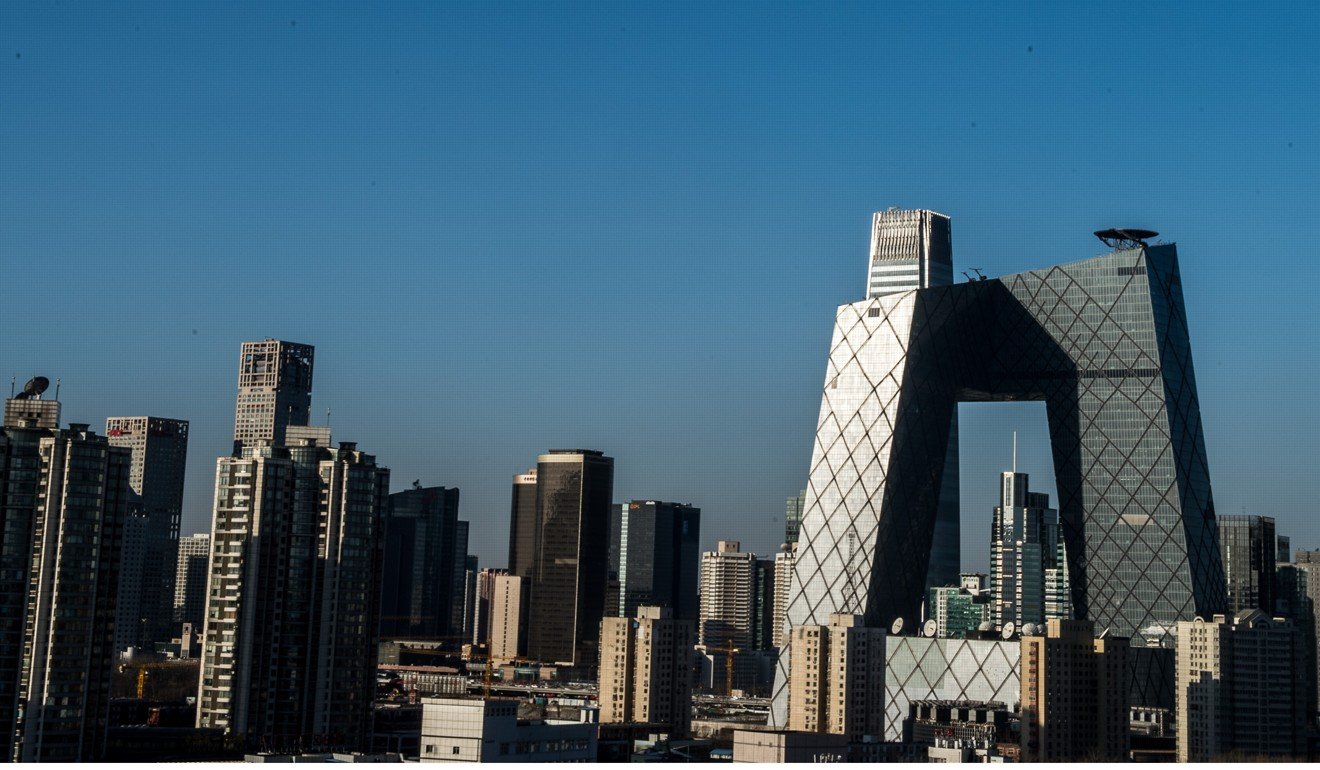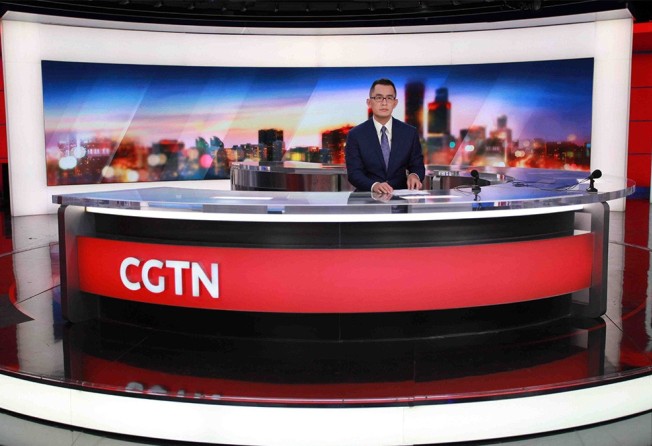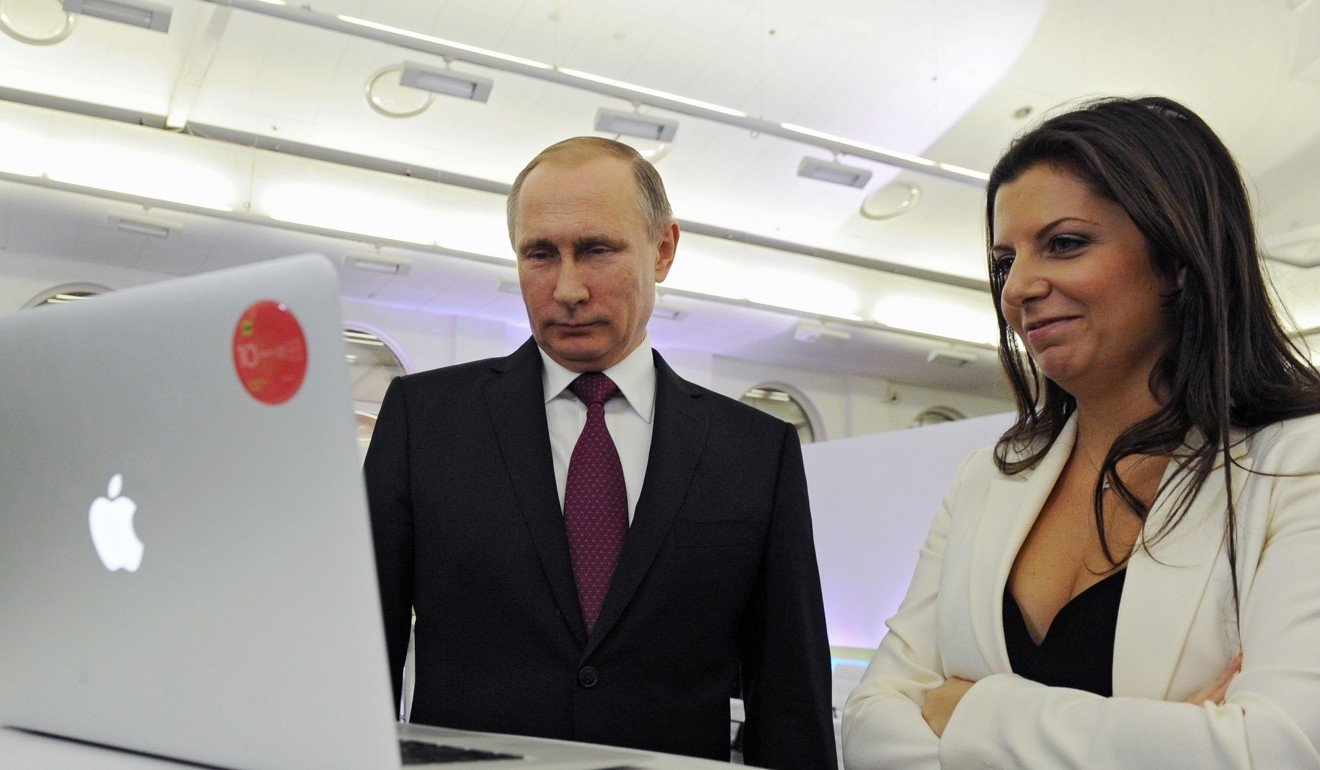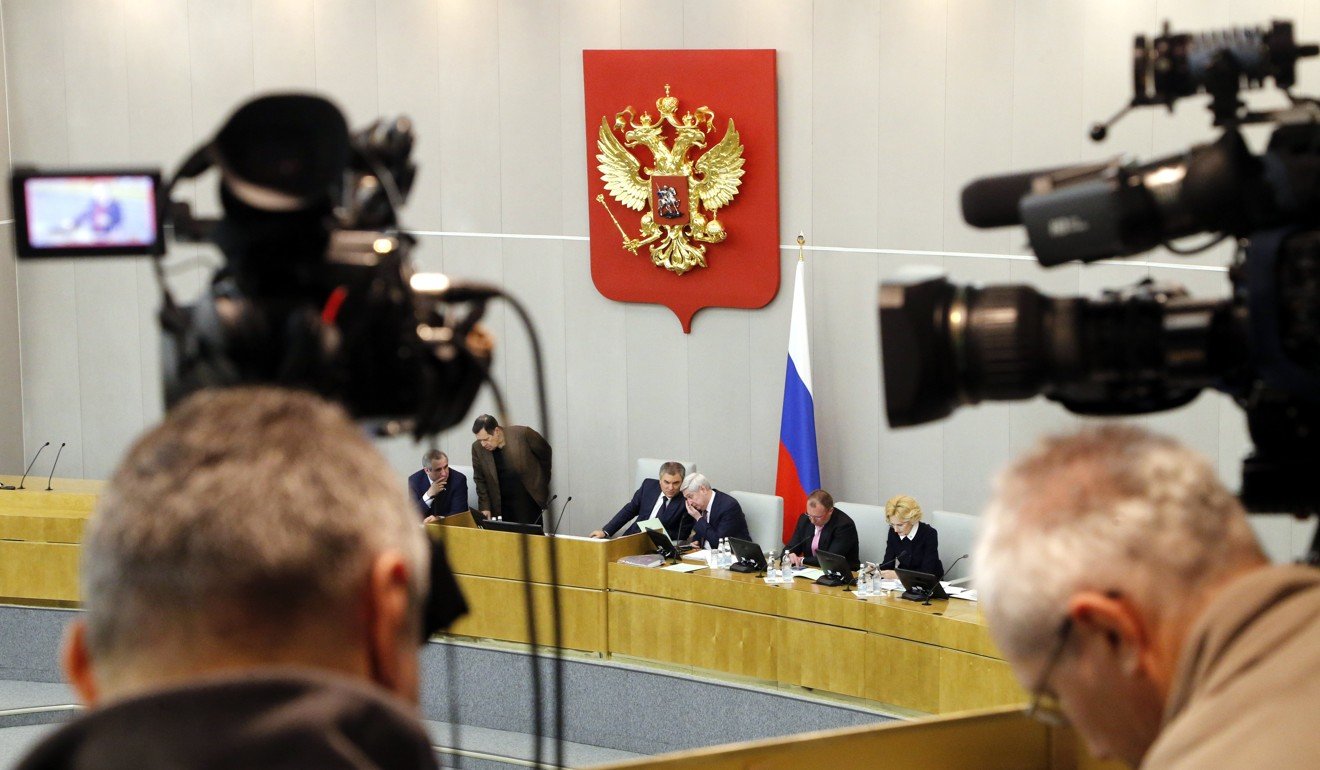
China’s flagship TV network has not registered as a foreign agent in US
CGTN America has been described as an attempt by China to spread its soft power globally

Ongoing investigations into Russian meddling in last year’s US presidential election have led to increased scrutiny of foreign outlets operating in the United States.
RT, the Russian state-backed English-language news organisation, was recently ordered by the US Justice Department to register as a foreign agent under the Foreign Agents Registration Act (FARA), but one of China’s biggest government-controlled news outlets has not registered its Washington operation.
In 2012, China Central Television (CCTV), the Chinese state broadcaster, launched an English-language affiliate headquartered in Washington. CCTV America – recently rebranded as CGTN America – has been described as an attempt by China to spread its soft power globally.
Its coverage of US domestic issues is professional and not clearly slanted in one direction or another. But any China-related reports strictly follow Communist Party media guidelines, presenting China as a positive, peaceful force whose geopolitical interests are righteous.
While CGTN America has not registered as a foreign agent, a public relations company that worked on behalf of the network’s US division did. In late 2011, just ahead of the channel’s American launch, CCTV signed a US$15,000-a-month contract with Ogilvy Public Relations to “communicate to the American public that CCTV America will provide compelling, comprehensive, and balanced news programming from an Asian perspective that is relevant to a global audience”.
In forms filed with the Justice Department in 2012, Ogilvy said CCTV America was supervised, owned, directed, controlled, financed, and subsidised by a foreign principal.

For its work on behalf of CCTV, Ogilvy Public Relations declared itself a foreign agent.
FARA was first passed in 1938 to counter Nazi propaganda in the US, and it is meant to provide some basic disclosure about an outlet’s operations. The law was intended “not to stymie that speech, but to make it so that people could know that it was a foreign government behind that speech”, said Ben Freeman, director of the Foreign Influence Transparency Initiative at the non-profit Centre for International Policy.
FARA registration could be onerous to media outlets, Freeman said: “It is a lot of information you have to file. It’s a lot of record-keeping.”
Registration may also interfere with a media outlet’s operations. In RT’s case, the congressional press office stripped the outlet of its media credentials, which reduces its access to American lawmakers.
FARA includes an exception for government-affiliated media outlets that are editorially independent. That is why the British Broadcasting Corporation, which is funded by a foreign government but is not under state editorial control, does not have to register under FARA, but RT America does; the US government says Moscow directs the channel to broadcast anti-American content.
An RT spokesman said: “We do not agree with RT America being forced to register under FARA. We have done so because the alternative posed a serious risk to our team and operations.”
Press freedom organisations have decried the registration requirement, arguing that it gives an excuse for authoritarian regimes to crack down on speech. “We’re uncomfortable with governments deciding what constitutes journalism or propaganda,” Alexandra Ellerbeck, the North America programme coordinator for the Committee to Protect Journalists, said last month.

This month, in retaliation for RT’s FARA registration, Russia labelled nine US-backed media outlets, including Voice of America and Radio Free Europe, as foreign agents under a newly amended law.
CGTN America is open about its connection to China’s state-controlled broadcaster, which carefully follows party guidance for its coverage. When asked about its FARA status, CGTN America declined to comment.
Some Chinese government-controlled outlets in the US have already registered. China Daily, a state-run English-language newspaper that is widely available on street corners across the US, first filed under FARA in 1983.
A November report by the US-China Economic and Security Review Commission called for employees of Chinese state-run media outlets to register as foreign agents, citing instances of illegal information-gathering and foreign government influence on public opinion. A Chinese foreign ministry spokesman denounced the report as “sheer fiction”.
It is not clear why the Department of Justice has not yet directed CGTN America to register.
“The Department of Justice is committed to enforcing the Foreign Agents Registration Act vigorously, to ensure that Americans understand who is acting to influence the US government or public on behalf of a foreign principal,” department spokesman Wyn Hornbuckle said.
“When we learn any person or organisation – including a media organisation and regardless of any particular nationality – is engaged in activities within the scope of the statute, the department will take necessary and appropriate measures to ensure compliance with the law.”
